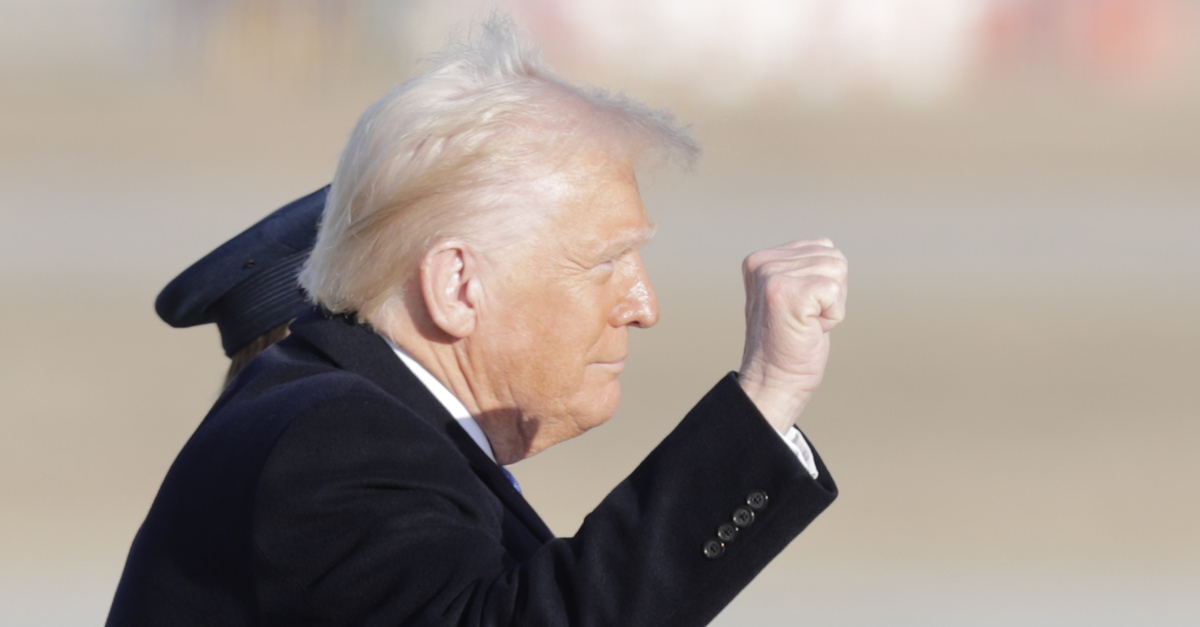Despite the federal government dismissing the criminal cases against Donald Trump after his 2024 election victory, the world may soon find out more about the former and current president’s alleged mishandling of confidential documents — including whether he “flushed some presidential records down the toilet” during his first stint in office.
A federal judge in Washington, D.C., on Monday ordered the FBI to release records the bureau had previously withheld in response to a Freedom of Information Act (FOIA) request filed by investigative journalist Jason Leopold... Continue reading here ▶
Ironically, it was Trump’s victory over Joe Biden in conjunction with the U.S. Supreme Court’s sweeping ruling granting a sitting president immunity from prosecution for official acts — litigation instigated by Trump — that formed the basis for the court’s holding in the FOIA case.
In a 26-page order, U.S. District Judge Beryl A. Howell reasoned that because Trump (and the co-defendants he pardoned after taking office) were no longer in danger of being prosecuted for the alleged retention of classified documents at his Mar-a-Lago home in Florida, the federal government could no longer prevent the disclosure of the documents requested by Leopold.
“Despite filling nearly 400 pages, including exhibits and declarations, briefing in this case fell behind developments in the real world that carry fatal consequences for the agency’s proffered rationale for withholding records responsive to a request under the Freedom of Information Act,” Howell wrote. “Absent correct application of an exemption, disclosure is required to allow the American people to learn about actions of government officials that the officials themselves may not otherwise want to be made public. As the D.C. Circuit has long made clear: ‘One basic general assumption of the FOIA is that, in many important public matters, it is for the public to know and then to judge.’”
The request stemmed from a February 2022 report that during his first term in office, Trump had flushed presidential records down the White House toilet. Soon after came a letter from the Archivist of the United States to Congress stating that as he lost the 2020 election, Trump had “brought presidential records, some of which were classified, to his personal residence at Mar-a-Lago.”
Leopold subsequently requested information on two categories of documents: “Presidential Records removed from the Trump White House that were stored at Mar-a-Lago” and “Presidential Records from the Trump White House that were destroyed and Presidential Records from the Trump White House that were allegedly flushed down the toilet.”
The requests were denied with the FBI basing its response to the former on a FOIA exemption allowing the government to withhold investigative records that could be “reasonably expected to interfere with enforcement proceedings,” while the latter was denied with the bureau refusing to confirm or deny the existence of responsive records — colloquially known as a Glomar response — because no investigation into the alleged flushing of records had been “officially acknowledged.”
But, according to Howell, the FBI could no longer rely on its justifications for refusing to provide the requested records.
Howell wrote:
Given the current circumstances and legal landscape — including that President Trump now enjoys absolute and presumptive immunity from criminal liability, the government has dismissed criminal charges against President Trump and has dropped its challenge to the district court’s order dismissing the criminal charges against his co-defendants for alleged mishandling of classified presidential records, and no pending or even contemplated criminal enforcement action within the applicable statute of limitations on the topics of responsive records is at all likely — the FBI’s reliance on Exemption 7(A) and a Glomar response predicated on this exemption, is neither a proper nor a sufficient response to the FOIA request at issue
Howell’s order also emphasized that all of the prosecutors involved in the criminal investigations into Trump had been “summarily fired” by Trump once he took office before taking aim at the Supreme Court’s ruling on presidential immunity, which she said shielded Trump from being held criminally responsible, but not from allowing the American people from knowing “what the government is up to.”
“Of course, while the Supreme Court has provided a protective and presumptive immunity cloak for a president’s conduct, that cloak is not so large to extend to those who aid, abet and execute criminal acts on behalf of a criminally immune president,” she wrote in a footnote. “The excuse offered after World War II by enablers of the fascist Nazi regime of ‘just following orders’ has long been rejected in this country’s jurisprudence.”
